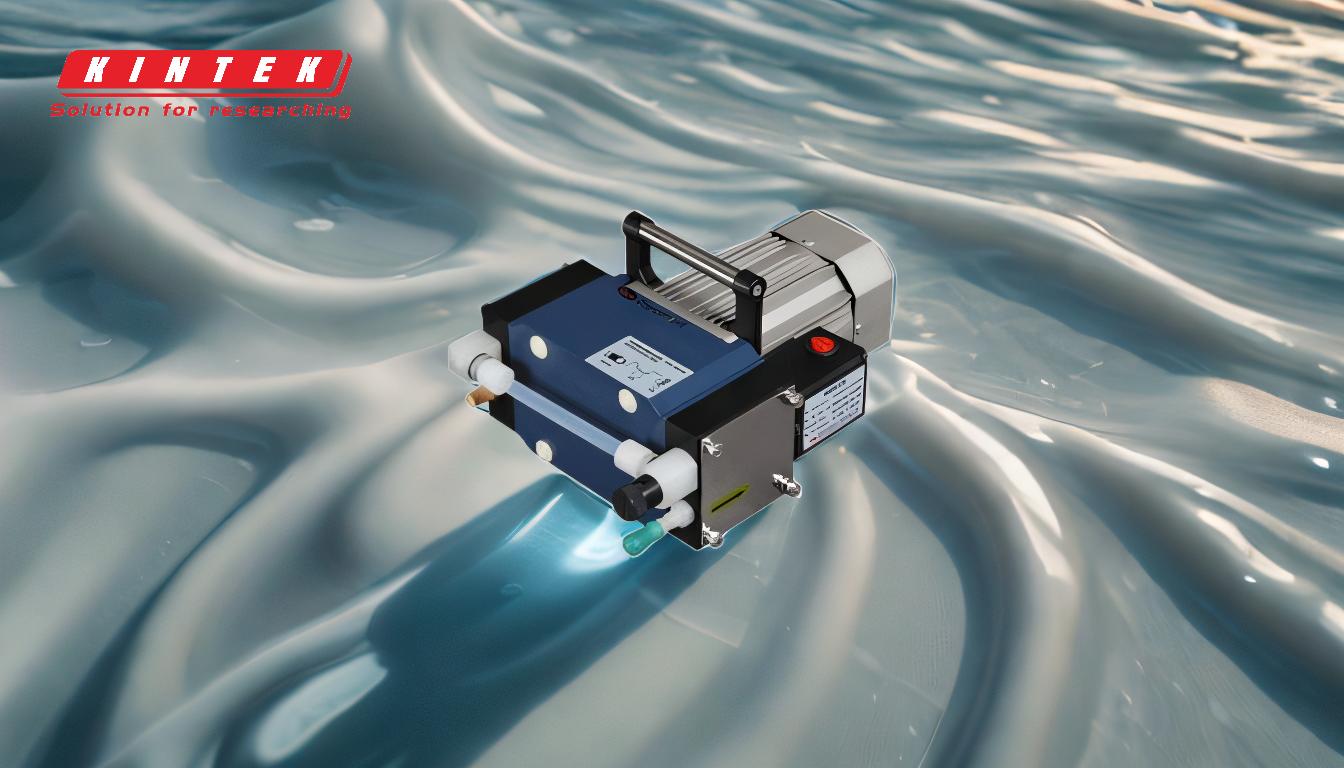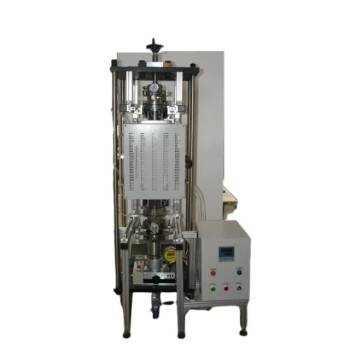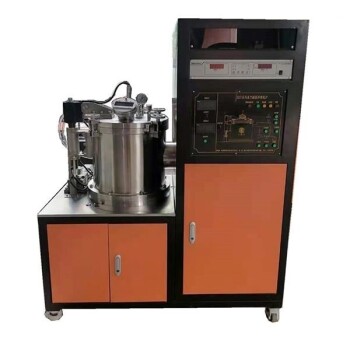A diffusion pump is a specialized vacuum pump used to achieve high and ultra-high vacuum levels, typically ranging from 10^-2 to 10^-10 torr. It operates without moving parts, making it durable and reliable. The pump works by vaporizing diffusion pump oil, which then condenses and captures gas molecules, creating a high vacuum environment. Diffusion pumps are essential in applications requiring extremely low pressures, such as electron-beam microscopy, vacuum deposition, coatings, and vacuum furnaces. They are activated between 10 and 1 microns and are often used in conjunction with mechanical pumps to achieve the desired vacuum levels.
Key Points Explained:

-
Purpose and Functionality of a Diffusion Pump:
- A diffusion pump is designed to generate high and ultra-high vacuum levels, which are lower than what mechanical pumps can achieve alone.
- It operates based on the vaporization of diffusion pump oil, condensation, and the trapping and extraction of gas molecules.
- The pump is activated in the range of 10 to 1 microns, allowing the system to pump down to high vacuum and lower.
-
Key Components and Operation:
- Diffusion Pump Oil: The oil is heated in a boilerplate, causing it to vaporize.
- Heater: The heater is responsible for heating the oil to its boiling point.
- Jet Openings: The rising oil vapor is compressed in a vertically tapered stack with jet openings, creating an umbrella of vapor that captures air molecules.
- Condensing Coils: Cool condensing coils on the pump’s exterior help the oil move downward, and the air is released at the base of the pump.
- Vacuum Chamber Connection: The top of the pump connects to a vacuum chamber, and the differential pressure between the top and bottom of the pump creates a high vacuum in the chamber.
-
Applications of Diffusion Pumps:
- Electron-Beam Microscopy: Requires high vacuum levels to prevent electron scattering.
- Vacuum Deposition: Used in coating processes where a high vacuum is necessary to ensure the purity and quality of the deposited material.
- Vacuum Furnaces: Used in processes that require high temperatures and low pressures to prevent oxidation and contamination.
- Surface State Physics and Particle Acceleration: These fields require ultra-high vacuum levels to study surface properties and accelerate particles without interference from air molecules.
-
Advantages of Diffusion Pumps:
- No Moving Parts: This makes the pump durable and reliable, with minimal maintenance requirements.
- High Vacuum Levels: Capable of achieving vacuum levels ranging from 10^-2 to 10^-10 torr, which are essential for many scientific and industrial applications.
- Versatility: Suitable for a wide range of applications, from laboratory research to industrial processes.
-
Comparison with Other Vacuum Pumps:
- Mechanical Pumps: These are typically used for rough vacuum levels and are often paired with diffusion pumps to achieve higher vacuum levels.
- Diaphragm Pumps: Commonly used in biological sciences for tasks such as filtration and distillation but are not capable of achieving the high vacuum levels required for applications like electron-beam microscopy or vacuum deposition.
-
Operational Considerations:
- Activation Range: The diffusion pump is activated between 10 and 1 microns, making it suitable for applications requiring high vacuum levels.
- Oil Maintenance: Regular maintenance of the diffusion pump oil is necessary to ensure optimal performance and longevity of the pump.
- Cooling System: The condensing coils must be properly cooled to ensure efficient operation and to prevent overheating of the pump.
-
Integration with Vacuum Systems:
- Diffusion pumps are often used in conjunction with other types of vacuum pumps, such as mechanical pumps, to achieve the desired vacuum levels.
- The combination of a mechanical pump and a diffusion pump allows for a more efficient and effective vacuum system, capable of reaching ultra-high vacuum levels.
In summary, a diffusion pump is a crucial component in many high-tech and scientific applications where achieving high and ultra-high vacuum levels is essential. Its unique design, relying on the vaporization and condensation of oil, allows it to operate without moving parts, making it both durable and reliable. Understanding its operation, applications, and advantages is key for anyone involved in vacuum technology or related fields.
Summary Table:
| Aspect | Details |
|---|---|
| Purpose | Generates high and ultra-high vacuum levels (10^-2 to 10^-10 torr). |
| Operation | Vaporizes diffusion pump oil to capture gas molecules, creating a vacuum. |
| Key Components | Diffusion pump oil, heater, jet openings, condensing coils. |
| Applications | Electron-beam microscopy, vacuum deposition, vacuum furnaces, particle acceleration. |
| Advantages | No moving parts, durable, high vacuum levels, versatile. |
| Integration | Often paired with mechanical pumps for efficient vacuum systems. |
Need a reliable diffusion pump for your application? Contact our experts today to find the perfect solution!









